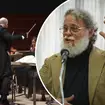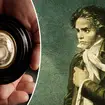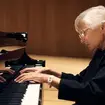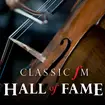The Beethoven Question: John Suchet shares his Beethoven knowledge
29 October 2012, 10:24 | Updated: 27 November 2012, 13:42
John Suchet attempted to answer the big questions about the classical composer, who composed some of his most famous pieces while he was profoundly deaf. Would we have the late quartets, or the 'Eroica' symphony, without Beethoven's deafness?
Classic FM's resident Beethoven expert, John Suchet, spoke at The Musical Brain conference at London's South Bank Centre on Saturday. He and a host of music academics, neurologists, scientists, and mathematicians attempted to answer the age-old question: 'Can art make life worth living'?
John spoked animatedly about Beethoven's deafness, explaining the many cures the composer was forced to endure in an attempt to heal his ailment. One such bizarre remedy was strapping wet bark to the composer's upper arms until it dried out and produced blisters. These painful sores did not cure Beethoven's deafness - they only served to keep him away from his piano for two weeks.
He said one of the most important incidents in the composer's life was an anecdote from the composer Ferdinand Ries, who walked with Beethoven in the countryside and heard a shepherd playing his pipe.
He said: "Imagine how that must actually have happened. Beethoven would have looked, seen the shepherd playing on his pipe and he will have seen from Ries' face that there was beautiful music playing."
While it isn't known how Beethoven responded to the pipe player, John painted a poignant picture of how Beethoven would have reacted to the physical evidence that he was losing his hearing.
"I want to speculate. What would Beethoven have done at that moment? If you thought you were losing your hearing, what would you have done? I'm sorry to dwell on this instance - to me it is critical in understanding Beethoven's life and his deafness, and his acceptance of his deafness."
He added: "This is a man who can only be a musician. There is nothing else Beethoven could do but be a musician and he was losing the one thing he could do. After this incident, Beethoven was never the same again because he had for the first time confronted his deafness."
Other highlights of the conference included a documentary from film-maker Linsday Dryden, whose film Lost and Sound followed the stories of three deaf individuals - a music reviewer who lost hearing in one ear, a young girl who lost her hearing at 14 months old but continued to play the piano and cello to a high standard, and a dancer who was born deaf. The talks and films were interspersed with performances from the Sacconi quartet.


























